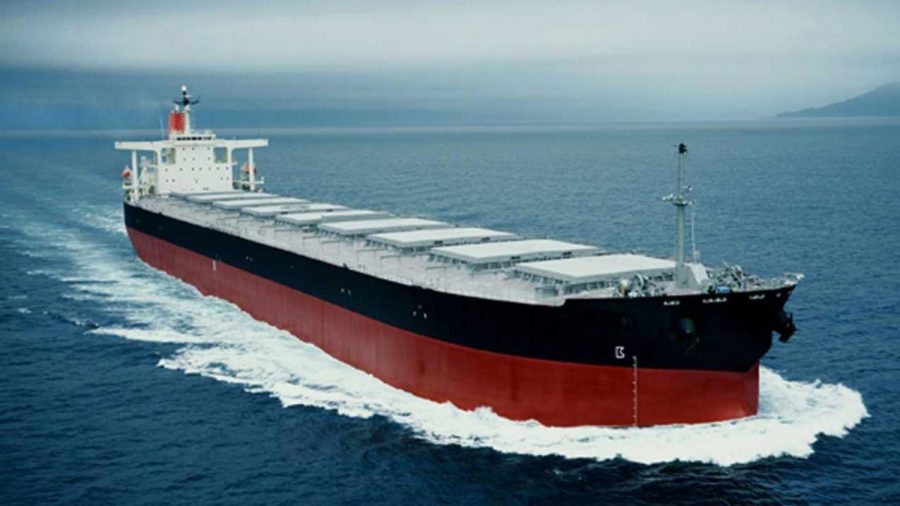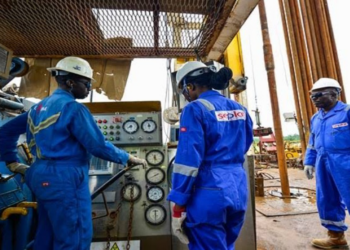The latest report released by the National Bureau of Statistics (NBS) shows Nigeria imported 5.61 billion litres of premium motor spirit (petrol) in the second quarter of 2019 (Q2).
According to the NBS report, the volume of petrol imported in Q2 2019 is 5% higher than the 4.87 billion litres of petrol imported in the first half of the year.
The breakdown: The report also includes the volume of other imported petroleum products which include automotive gas oil (AGO), household kerosene (HHK), aviation turbine kerosene (ATK), bitumen, low pour fuel oil (LPFO) and liquified petroleum gas (LPG).
- 1.38 billion litres of automotive gas oil were imported.
- 12.22 million litres of household kerosene were imported.
- Nigeria imported 131.36 million litres of aviation turbine kerosene.
- Also in Q2 2019, 77.24 million litres of base oil were imported
- 41.79 million litres of bitumen were equally imported.
- Importation of low pour fuel oil was put at 27.68 million litres
- Lastly, 354.70 million litres of liquefied petroleum gas were imported into the country in Q2 2019.
Petrol distribution in states: State-wide distribution of truck-out volume for Q2 2019 shows that 5.18 billion litres of Petrol were distributed, followed by 1.28 billion litres of automotive gas oil and 131.42 million litres of household kerosene. Also, 176.14 million litres of aviation turbine kerosene and 157.29 million of Liquefied Petroleum Gas were distributed nationwide during the period under review.
Cost of importing petrol: As the volume of petrol importation increased, so was Nigeria’s spending on the commodity. Trade statistics from the Bureau shows Nigeria’s import bill for Q1 2019 was largely dominated by petroleum product.
- In Q1 2019, Nigeria spent a whooping N190 billion to import petroleum product.
- In total, petroleum import accounted for 5.15% of Nigeria’s import bill in Q1 2019.
- While this is worrisome, subsidy on petrol gulped billions of Nigeria’s revenue.
- The report shows that Nigeria is the only nation among the 15 members of the Organisation of Petroleum Exporting Countries (OPEC) importing petrol.
- Such, apparently, has been the grim state of things in the country over the years.
[READ MORE: Nigeria spent N206.6 billion on fuel subsidy in two months]
Will Petrol importation stop in 2019? The NNPC had earlier set a deadline to stop petrol importation by the end of 2019. The former Group Managing Director of the Corporation, Dr Maikanti Baru, revealed that measures had been taken to achieve the target.
- Meanwhile, recent reports suggest the NNPC has now set another target to stop importation by 2020. This may be largely connected to the delay experienced by Dangote’s refinery which was billed to take off by the end of this year, to produce 65.4 million litres of Petrol daily.
- Meanwhile, the new Group Managing Director of the NNPC, Mele Kyari, has promised to repair Nigeria’s four national refineries before 2023.
It’s a shame: NNPC boss disclosed on Tuesday said it’s a shame that Nigeria remains a net importer of petroleum products. Malam Kyari, disclosed this at the opening of the 2019 Annual Conference and exhibition organised by the Society of Petroleum Engineers on Monday in Lagos.
“Today, we are a net importer of petroleum products which is a very big shame for us as a nation. And as for professionals, we can’t give any excuses, but today it’s a shame that this country is a net importer of petroleum, but we are going to change that. NNPC is going to get its house together to fix the refineries. We want to make the refineries functional with at least 90% capacity.”
[READ FURTHER: NNPC’s new boss promises to fix national refineries by 2023]























